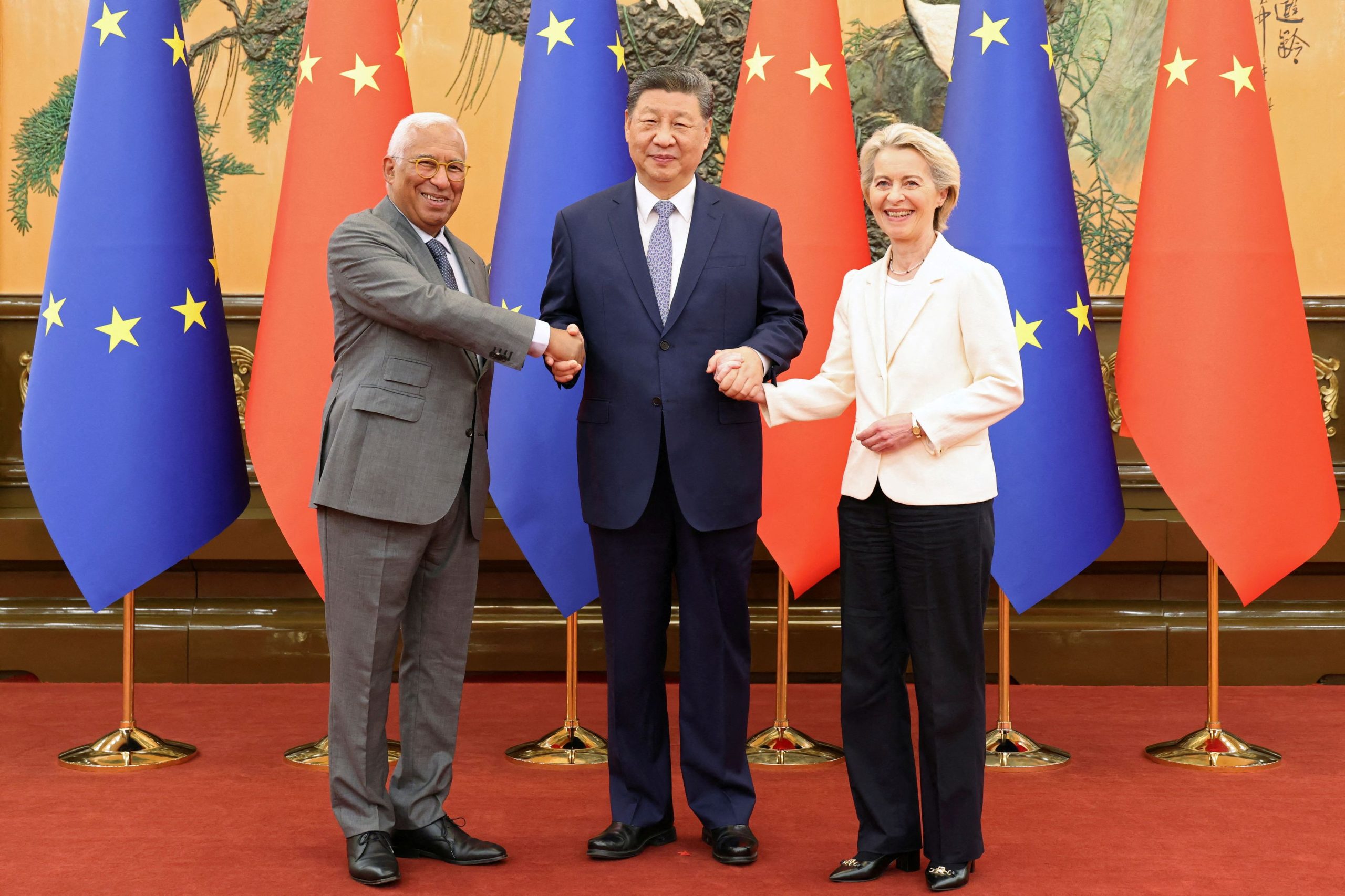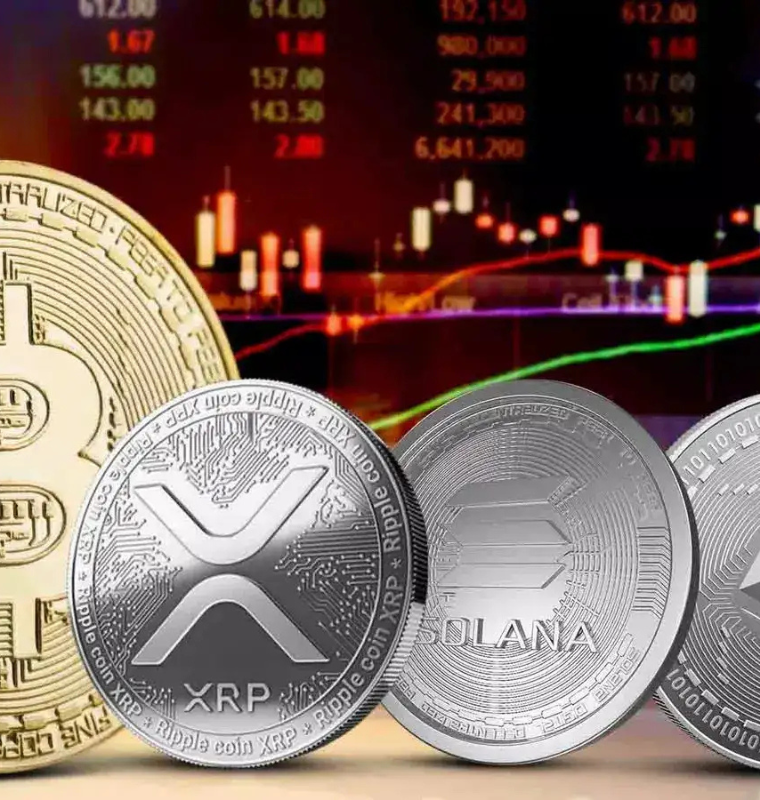EU Commission President Urges More Balanced Trade with China Amid Rising Tensions
EU Commission President Urges More Balanced Trade with China Amid Rising Tensions
By
Leah Rosenfeld
Last updated:
July 25, 2025
First Published:
August 6, 2025

Photo: tovima.com
EU-China Summit Highlights Urgent Need for Trade Rebalancing
During the 25th annual EU-China summit held on Thursday, European Commission President Ursula von der Leyen made a strong call for a more balanced trade relationship with China. The summit, which was relocated from Brussels to Beijing and shortened to a single day, reflected growing complexities in the economic and geopolitical ties between the two global powers.
Von der Leyen emphasized the pressing need to address the expanding trade imbalance that currently sees China running a goods surplus of nearly $143 billion with the EU in the first half of 2025—a 21% increase compared to the previous year, according to official customs data.
Key Issues: Overcapacity, Market Access, and Export Controls
In a detailed press conference, von der Leyen outlined three critical concerns raised with Chinese officials:
- Industrial Overcapacity: China’s subsidized manufacturing capacity exceeds domestic demand, flooding international markets and distorting competition in the EU.
- Market Access: The EU has long struggled with limited access to the Chinese market for European companies, facing regulatory barriers and restrictions.
- Export Controls on Rare Earths: China’s restrictions on rare earth elements and permanent magnets—crucial for European high-tech and automotive industries—have escalated tensions.
Von der Leyen warned, “Without progress on these issues, it will be challenging for the EU to maintain its current openness toward China.” She urged that competition must be “fair” and sustainable for both parties.
President Xi Calls for Strengthened Cooperation Despite Differences
Chinese President Xi Jinping highlighted the “mutually beneficial” nature of the EU-China relationship, especially amid increasing global geopolitical instability. He stressed that “the more severe and complex the international situation, the more China and the EU should strengthen communication, enhance mutual trust, and deepen cooperation.”
However, Xi also acknowledged the need to properly manage differences, signaling cautious diplomacy amid rising friction.
Trade Tensions Escalate Amid Global Shifts
The summit took place against a backdrop of mounting trade tensions worldwide. The EU’s decision last year to impose tariffs on Chinese electric vehicles to protect its domestic market triggered retaliatory anti-dumping investigations by China into European goods such as brandy, dairy, and pork.
Experts like Daniel Balazs of the S. Rajaratnam School of International Studies note that the summit largely reiterated entrenched positions: the EU seeks “more balanced economic ties” and greater Chinese involvement in resolving the Ukraine conflict, while Beijing pushes to reverse EU restrictions on its companies and trade tariffs.
Broader Challenges Complicate EU-China Relations
Beyond trade imbalances, several other issues cloud the bilateral relationship:
- Government Procurement Restrictions: China recently limited government purchases of European medical devices following the EU’s move to exclude Chinese firms from public tenders.
- Rare Earth Export Controls: Chinese export curbs earlier in 2025 led to temporary shutdowns in European automotive production. Though China has eased some restrictions, the “weaponization” of these critical materials has left a lasting impact, driving Brussels to accelerate its economic “de-risking” from China, according to Eurasia Group.
Summit’s Shortened Format Reflects Fragile Ties
The decision to move the summit from Brussels to Beijing and shorten its duration from two days to one is widely interpreted as a sign of strained relations. Eurasia Group attributes this shift to “hardening stances and mismatched expectations” between the two parties.
Looking Ahead: A Critical Juncture in EU-China Relations
President von der Leyen described the summit discussions as “very constructive and very pragmatic,” yet underscored the reality that the relationship has reached an “inflection point.” She called for both sides to acknowledge each other’s concerns and deliver “real solutions” to ensure a fair, balanced, and resilient economic partnership moving forward.
Popular articles
Subscribe to unlock premium content
Disney’s Timeless Magic and How the Entertainment Giant Continues to Shape Culture and Innovation

Imran Khan’s Economic Missteps Amid Political Chaos in Pakistan

The Philippines’ Digital Shift How Remittances and BPO Are Fueling Growth

Disney’s Timeless Magic and How the Entertainment Giant Continues to Shape Culture and Innovation

Imran Khan’s Economic Missteps Amid Political Chaos in Pakistan

Disney’s Timeless Magic and How the Entertainment Giant Continues to Shape Culture and Innovation









